儿童日常英语口语-六年级上册英语苏教版(2)
5.He eats a few eggs. 他吃几个鸡蛋。
6.She drinks a little water. 她喝一点水。
7.You shouldn’t drink too much cola. 你不应该喝太多的可乐。
8. Can we have a rest? 我们能歇息一下吗?
9. She eats a little rice. 她吃了一些米饭。
五、语法解析
①a lot of 、lots of表示好多: +可数名词/不可数名词。
Many/much 也表示好多
Many+可数名词
Much+不可数名词
some表示一些, +可数名词/不可数名词。用于评判句
any表示一些, +可数名词/不可数名词。用于抵赖准句
a few与 a little都表示数量虽少但终退还有,着重有。
a few+可数名词,
a little+不可数名词。
No 表示不曾+可数/不可数名词
②名词变复数形式,有许多种状况
直接加s
以s,x,sh,ch结尾加es
以辅音字母加y结尾去y为ies
f或fe结尾变f或fe为ves
有些以辅音字母加o结尾的加es,如 mango—— mangoes potato—potatoes tomato——tomatoes
名词的不法度变换Mouse-mice child-children tooth--teeth
Unit4 Road safety重点知识综合
一、四会单词
road马路,公路 must必须 safe平安的 follow遵守 light灯
二、三会单词
safety平安 cross穿越,穿行 safely平安地 zebracossing斑马线pavement人行道lookoutof端庄,提防 easily简捷地 rule法度 stay保持
三、短语聚积:
1. road safety 道路平安 2. many busy roads 好多繁忙的道路
the city在城市里 4. cross the road safely 平安地过马路
5. cross a busy road safely平安地穿越一条繁忙的马路
6. look at the traffic lights 看交通灯7. wait for the green man 期待绿灯
8. see the red man 看红灯 9. keep safe 保持平安
10. wait on the pavement 在人行道上乘待
11. look out for cars and bikes 端庄小 和自行车
12. look left看左边 13. look right 看右边
14. also cross the road with other people 也能够和其旁人同时过马路
15. see you easily很简捷目睹你 16.some children 一些孩子们
17. a child 一个孩子 18. play on the road 在路上玩
19. many cars and bikes 好多小 和自行车 20. follow the rules 遵守法度
21. stay safe on the road 在路上保持平安
22. must look for a zebra crossing 必须寻找一条斑马线
23. wait for the bus 期待公交车 24. wait for me 等我
25. the other people 其旁人
26. must look for a zebra crossing必须寻找一条斑马线
27. find a zebra crossing找到一条斑马线
28. mustn’t run quickly 绝不能飞速地跑步
29. mustn’t walk 绝不能行走
30. the left side of the road 马路的左边
31. drive on the right side of the road 马路的右边克
32. except me 除非我 33. except Macau除非澳门
34. go to see their aunt去看他们的阿姨
35. take the bus 乘车 36. get on the bus 上车
37. get off the bus 下车 38. so many cars 如此多的车
39. so much water 如此多的水 40. go fast 快点去
41. a red light 一个红灯 42. look at the green light 看绿灯
43. at the bus stop在公交车站 44. must stop 必须停下来
45. go on 继续,继续向前 46. run fast 跑得快
47. go to see the doctor 去看医生 48. you’re sick 你得病了
49. classroom rules 班级法度 50. play ball games 玩球类
51. talk loudly 厉声地谈论52. keep your desk clean 保持桌子干净
53. listen to your teachers in class 在课堂上听老师
四、重点句型:
1.你如何平安地过马路?我必须寻找一条斑马线。
A: How can you cross the road safely?
B: I must look for a zebra crossing.
2.为了平安地过马路你必须做什么? 我必须看交通灯。
A: What must you do to cross the road safely?
B: I must look at the traffic lights.
3. 为马路上你们绝不能做什么?我们绝不能在路上玩。
A^fen^ What must you not do on the road ?
B: We mustn’t play on the road.
4.你不能在这过马路。
You can’t cross the road here.
5. 我能看电视吗?不,你不能。当前晚了。你必须去睡觉。
A: Can I watch TV?
B: No, you can’t. It’s late.
You must go to bed.
6. 我必须去看医生吗? 是的,你必须要去。你不能去学生因为你得病了。
A: Must I go to see the doctor?
B: Yes, you must.
You can’t go to school because you are sick.
五、语法知识解析
1三个含有look的短语意思各不相同:
look for寻找 look at 看 look out for端庄,端庄
2分辨safe,safety,safely:
safe是形容词,译为平安的 I am safe now. 当前我平安了。
safety是名词,译为平安 road safety道路平安。
safely是副词,用于装点动词或形容词,译为平安地 We walk to school safely. 我们平安地走到 。
3 must 和can用法
1)must和can都是情态动词,后面跟动词原形。常用的情态动词还有:should、 may 等。
2)can的大约用法:①表示实力。He can sing.
②表示允许。Can I go now?
③表示哀求。Can I have some paper?
3) must的大约用法:①表示必须的意思。You must do your homework now.
②表示势必的后果。The sun must rises from the east.太阳必须从东方升起。
mustn't却表示"不要、不能、禁止"的意思,语气较强. We mustn’t play on the road
6B Unit5 单元知识汇总
一、四会单词
Children’s Day儿童节 begin初步 end完结
二、三会单词
Clown小丑 appear揭示 balloon气球 put on上演,扮演
三、短语聚积
1、Children’s Day 儿童节 2、on Children’s Day 在儿童节
3、this Sunday 这周日 4.have a party 主办团聚
5、at the party 在团聚上 6、buy some snacks and drinks 买些零食和饮料
7、bring some fruit from home 从家里带些水果
8、bring their things to Mike’s house 把他们的东西带到了迈克家
9、play with her friends 和她的好友同时玩
10、play with the toys first 先玩玩具
11、at Mike’s house /in Mike’s home 在迈克家
12、Sunday morning 礼拜天上午 13、on Saturday afternoon 在礼拜六下午
14、just then 就在当初 15、some balloons 一些气球
16.have some fun 玩会儿 .玩得适意 17、look out of the window 朝窗外看
18. look out for 端庄,端庄 18、the lovely snow 可恨的雪
19、go to a Western party 去一个西方的派对 20、take a gift 带个礼物
21、arrive too early 到得太早 22、be a few minutes late 延迟几分钟
23、play the piano 弹钢琴 24、tell a story 讲故事
25、put on a play 扮演一个戏剧 26、wear his new clothes 穿他的新衣服
27、think of some party games 想一些团聚
28、know about parties 获悉有关团聚的知识
29、answer Mike’s question 答对麦克的问题
30、do sth. for the party 为团聚做某事32.look for some fruit 寻找一些水果
33、look after the little child 照看小孩34、look at the blackboard 看黑板
35、borrow some books 借一些书36、have a party 进行一个团聚
37、a clown appears 一个小丑揭示了38、begin our party 初步我们的团聚
39.end the party 完结团聚40、buy something for the party 为团聚买些东西
4、bring something to the party 带些东西到晚会
四、重点句型
1、Class begins.初步上课 2、The party ends.团聚完结
3、A clown appears.一个小丑揭示了
4、It is Children’s Day this Sunday.这周日是儿童节。
5、Where are you going to the party?你们将去哪里主办团聚?
6、I am going to bring some toys.我计划带一些玩具。
7、Are you going to eat or play with the toys first?你们计划先吃还是玩玩具?
8、 Does anybody know why we have snow? 有人获悉为什么我们有雪吗?
9、 When’s the party going to begin? 团聚什么时候初步?
10、When’s it going to end? 它什么时候完结?
11、What is he going to do for the party? 他计划为团聚做什么?
12、There are six children at the party. 在团聚上有六个小好友
五、语法 平凡未来时
平凡未来时的大约构造:主语+ be going to/will+动词原形。
平凡疑问句:be+主语+ going to+动词原形?
Will+主语+ 动词原形?
评判答对:Yes,+主语+提问的助动词.
抵赖答对:No,+主语+提问的助动词+not.
特殊疑问句:特殊疑问词+助动词+主语+要做的事情
你们计划明天玩什么? What are you going to play tomorrow?
你们计划明天在哪里玩? Where are you going to play tomorrow?
你们计划明天什么时候玩? When are you going to play tomorrow?
你们计划明天踢打篮球吗? Are you going to play basketball tomorrow?
Yes, we are. // No, we aren’t.
Will 和 be going to 构造的差别
1、 两者均可用来表示未来的志愿,但"be going to"构造语义稍强些。例如:
They are going to climb the Qomolangma one day.
他们准备/想未来某一天去爬珠穆朗玛峰。
2、对于事先穿越斟酌的计划、计划、志愿, 应应用be going to, 而不是will 构造。例如:
— What are you going to do next Sunday?
下礼拜天你计划干什么?
— I'm going to go fishing. 我计划去钓鱼。
3、 对于未穿越斟酌的计划,计划,只是暂时之意,则用will 构造,不用be going to 构造。例如:
— Where is the telephone book? 号码簿在哪儿?
— I'll go and get it for you. 我去给你拿。
4、在表示即刻缔造某事时,两者差别含义不大,多可互换。例如:
What is going to happen? 即刻缔造什么事?
What will happen? 即刻缔造什么事?
平凡说来,be going to 表示较近的未来,而will 则表示较远的未来。试比拟:
It is going to snow tonight. 今晚要下雪。
There will be a strong wind in a few days. 几天后将有一场大风。
5、表示不受人的主观意愿波及的纯真未来, 平凡只能用will构造。例如:
Tomorrow will be April Fools' Day. 明天是愚人节。
6、在正式的通知管用will构造。例如:
There will be a heavy rain to the south of Huai River.
淮河以南将有大雨。
六、作文
Plans for the party
It’s Children’s Day this Sunday. We are going to have a party at Helen’s party.
Mike is going to buy some snacks and drinks for the party. Yangling is going to bring some toys. We are going to have some fun first,then we are going to eat and drink at the party.
6B Unit6 单元知识汇总
一、四会单词
Country国度will将,即刻learn学习welcome迎候visitor游人,游客like如month月
二、三会单词
find out发觉 magazine杂志 kangaroo袋鼠 koala考拉 sport-lover 酷爱者Australian football-澳式橄榄球 exciting令人亢奋的,令人激动的 Sydney悉尼
for example例如 London伦敦 Oxford牛津 Big Ben大本钟 London Eye伦敦眼
Tower Bridge塔桥 What do you think?你觉得呢
一个有趣的国度 an interesting country
三、短语聚积
learn about Austrailia 探听澳大利亚
next week 下周
learn…from 向……学习
find out 发觉
before the lessons 在课前ask my e-friend 问我的网友
send me some hotos 送我一些照片
come from Australia 来自澳大利亚
read about Australia on the Internet在网上阅读有关澳大利亚的状况
love our kangaroo and koala酷爱我们的袋鼠和树袋熊
Sport- lover 体育酷爱者
Australian football game 澳式橄榄球竞赛
People in Australia 澳大利亚的人们
Welcome visitor 迎候来访者
find some photos of Australia找到一些澳大利亚的照片
四、重点句型
an interesting country 一个有趣的国度
tell you about the UK 告知你有关英国的状况
fresh air 新奇的空气
the Great Wall 长城
find out about cooking 查找有关烹饪的知识
Just wait and see 就等着瞧in the kitchen 在厨房里
make a potato salad 做一个土豆沙拉 some interesting cities 一些有趣的城市
for example 比方 eat nice food 吃好吃的食物
learn about cooking 学习关于烹饪的知识
Its view is fair.它的风景很美。
Sydney is a beautiful city.悉尼是一个美丽的城市。
They are very exciting. 它们极端令人激动。
I want to be a cook. 我想成为一名厨师。
What will you cook? 你要做什么?
Will you cook a fish for me? 你给我烧条鱼好吗?
五、语法指点
will + V 将。。。 表示客观上,从逻辑,常理,事情进展的状况上将会缔造什么事情。
与计划无关的句子只能用will +动词原形
杨玲计划去图书馆。 Yang Ling will go to the library.
明天是礼拜天。 Tomorrow will be Sunday.
她明年将会15岁。 She will be 15 next year.
常见日期状语:tomorrow, tomorrow afternoon, next week, in a year, this evening
他们即刻去野餐。
à抵赖句
à平凡疑问句,肯否答对
à他们即刻做什么?
à他们即刻在何时何地野餐?
à他们将和谁同时野餐?
1.他们将会很忙。
2.明天将会有一场足球赛。
1. They will have a picnic.
2. They won’t have a picnic.
3. Will they have a picnic? Yes, they will. No, they won’t.
4. What will they do?
5. When and where will they have a picnic?
6. Who will you have a picnic with?
留神点:
1. They are busy now. → They will be busy .
2. There is a football match.
→ There will be a football match tomorrow.
potato土豆 :potatoes country: countries
学关于澳大利亚的内容 Learn about Australia
Australia → Australian : speak English
Learn: study
Learn…from learn a lot from her从她身上学到许多
找到关于这个国度的状况Find out about this country find found
Find找到 find out
6B Unit7 单元知识汇总
一、四会单词
Go back to回去 how long多久 photo 照片 travel旅游
二、三会单词
summer holiday暑假 stay停留 sound听起来,听上去
Disney Park迪士尼乐园
Ocean Park海洋公园 Taipei台北 traveller旅游者
travel around the world环游世界 different不同的
三、短语聚积:
1.summer holiday plans 暑假计划
2. talk about their plans for the summer holiday 谈论他们的暑假计划
3. go back to London 回到伦敦 4. how long 多久 5. stay there 呆在那儿
6. stay there for a month 在那里呆一个月
7. visit their aunt and uncle 拜会他们的阿姨和叔叔
9. That sounds great 那听起来真不错
10. go to Beijing by plane 乘飞机去北京11. go there by train 乘火车去那里
12. go to Hong Kong with my family和我的家人去香港
13.go to Disneyland 去迪士尼乐园14. go to Ocean Park 去海洋公园
15. What about you?那你呢? 16. How about you ?那你呢?
17.go to Taipei 去台北 18. That’s wonderful!那真是出众啊!
19. show you some photos 向你揭示一些照片20. after the holiday 佳节后
21. before Children’s Day 儿童节前
22. want to see the city 想看看这座城市 23. will be busy将会很繁忙
24. in the summer holiday 在暑假 25.live in Australia 住在澳大利亚
26.look at the little 看看这个小男孩 27. play with toys 玩玩具
28. really happy 真的很适意 29. full of joy 充满欢畅
30. Uluru in Australia澳大利亚的乌卢鲁巨岩
31. the Grand Canyon in the US美国大峡谷
32. Buckingham Palace in the UK 英国的白金汉宫
33. Niagara Falls in Canada 澳大利亚的尼亚加拉大瀑布
34. read a travel book 读一本旅游书
35. want to be a traveller 想要成为一名旅游者
36. talk about his travel plans with her 和她同时谈论他的旅游计划
37. visit many places观赏好多地方 38. go with me 和我同时去
39. be excited about the plans对这个计划感到极端激动
40. go to the US 去美国 41. get to the UK 抵达英国
42. take a taxi 乘出租车 43. do many things 做好多事情
44. have a wonderful summer holiday 有一个出众的假期
四、重点句型:
1.你假期计划去哪儿?我计划去香港。
Where will you go for the holiday? I will go to Hong Kong.
2.你将何时去?我将在六月/七月/八月去。/我将在3月1日去。
When will you go?
I will go there in June/July/August.
I will go on the 1st of March.
3.你将在那呆多久?我将在那呆一个月。
How long will you stay there?
I will stay there for one month.
4.你将做什么?我将观赏迪士尼乐园和海洋公园。
What will you do?
I will visit Disneyland and Ocean Park.
5.你将怎样去那儿?我将乘飞机去那儿、
How will you go there? I will go ther
儿童日常英语口语

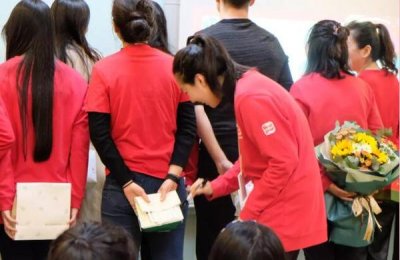

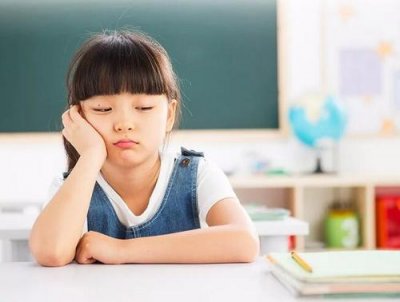

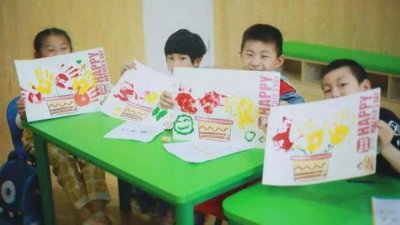 怎么选择一家好的少儿
怎么选择一家好的少儿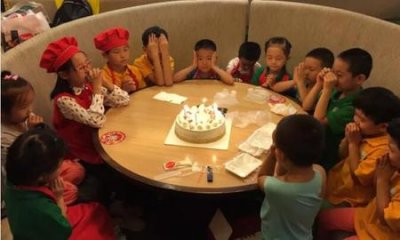 少儿学英语,怎么让孩
少儿学英语,怎么让孩 幼教干货:孩子做事拖
幼教干货:孩子做事拖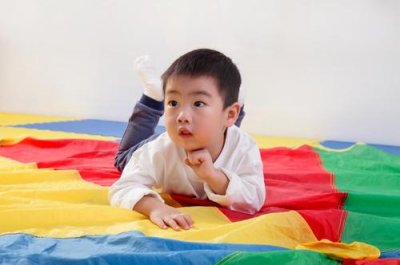 英语知识:少儿英语学
英语知识:少儿英语学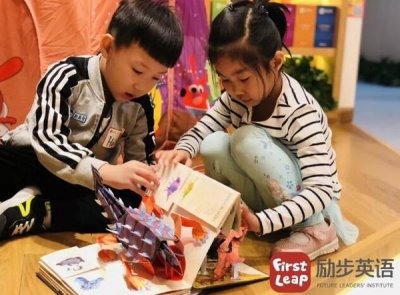 幼少儿英语学习10大技
幼少儿英语学习10大技 如何培养幼少儿英语学
如何培养幼少儿英语学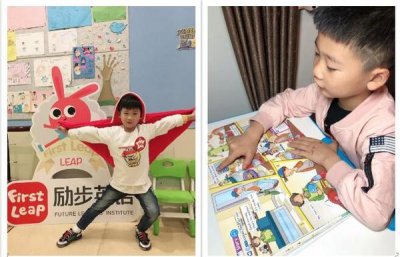 “妈妈,刚刚说的那句
“妈妈,刚刚说的那句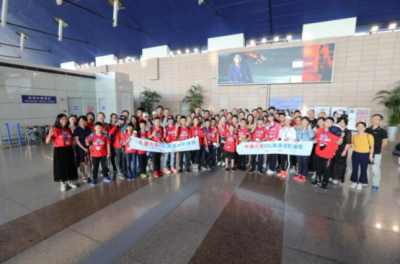 vip炸联合环识打造全
vip炸联合环识打造全 励步云学习My Space上
励步云学习My Space上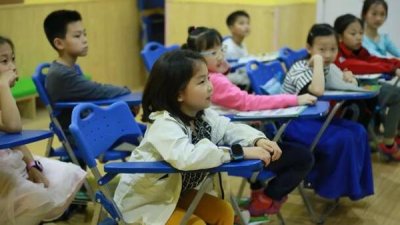 孩子英语考试成绩与能
孩子英语考试成绩与能 湖南知名少儿英语培训
湖南知名少儿英语培训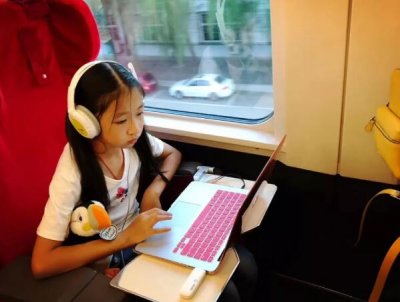 励步小明星:没有横空
励步小明星:没有横空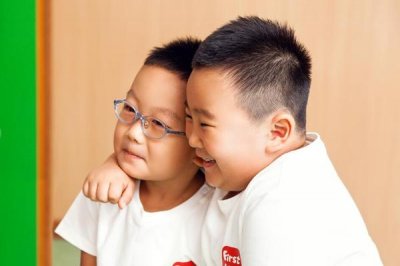 少儿英语入门学习方法
少儿英语入门学习方法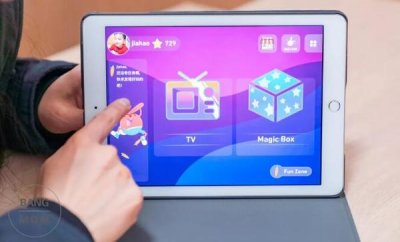 儿童英语学习动物英文
儿童英语学习动物英文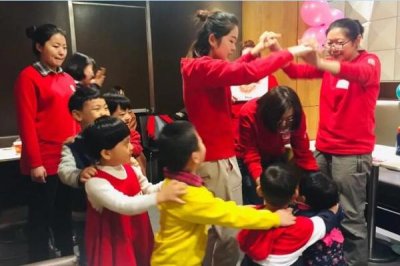 大多学霸的家教方式都
大多学霸的家教方式都 励步ONE计划,用英语+
励步ONE计划,用英语+






